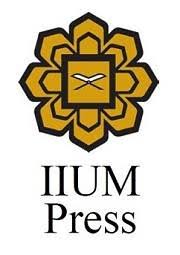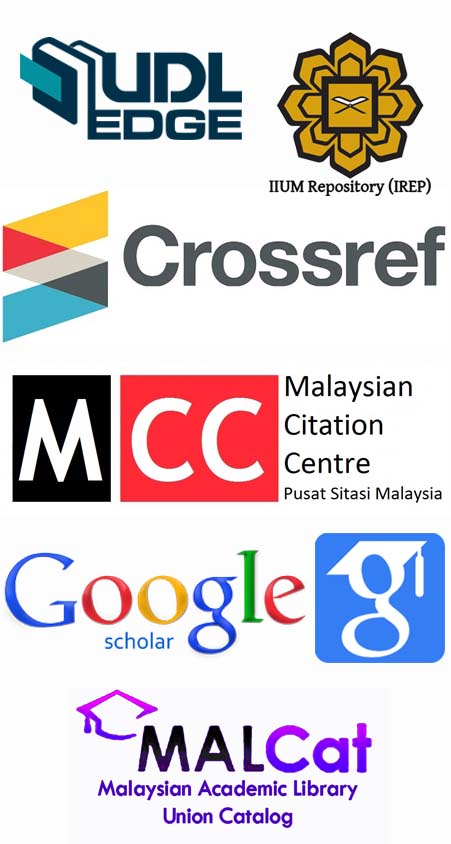The Principles of Tabayyun According to the Qurʾan: Solutions to the Challenges and Strife of the Social-Media
DOI:
https://doi.org/10.31436/alburhn.v6iSpecial%20Issue%201.260Keywords:
Principles of tabayyun, Quranic studies, social media, fake news, slanderAbstract
The epidemic of fake news i.e., the dissemination of unrestricted information has been an intrinsic component within the life of present-day society since the advent of sophistication in technology in the globalisation era. In addition, a handful of people engage in incessant gossiping and backbiting among one another in perpetuating issues that have gone viral. The information or news are accessible from the internet, particularly via smartphone applications such as WhatsApp, Facebook, Instagram, Twitter, and others. The issue at stake is to what extent the easily obtained information is scrutinised to determine its truth. If the information is valid, it might be beneficial for the receiver; however, on the contrary, it is fake, the information could potentially generate discord and hostility. The issue this paper intends to address is the applicability of the principles of tabayyun in the face of challenges and conflict in the current era of globalisation. In so doing, this study aims to first understand the concept of tabayyun from the Islamic perspective and analyse the guidelines of the principles as prescribed by the al-Quran as a tool in dealing with the challenges and strife of social media. The research adopted a qualitative approach through exploration of various library sources. The data collected were analysed and discussed to arrive to achieve the objectives of this study. This study found that the principles of tabayyun is emphasised in Islamic teachings to safeguard human beings from falling prey into the traps of slander as well as preventing them from accepting and disseminating questionable and inaccurate information. The principles of tabayyun require that the authenticity of information be established as it undergoes prior filtration and investigation. Thus, tabayyun is an indispensable tool that the public may apply when receiving and disseminating information in their daily lives and thereby not hasten in deriving conclusions upon any particular information received.
Downloads
References
al-Bakri, Zulkifli Mohamad. ‘Tabayyun Dalam Penerimaan Dan Penyampaian Berita’. Bayan Linnas, 13 June 2019. https://muftiwp.gov.my/artikel/bayan-linnas/3485-bayan-linnas-siri-ke-184-tabayyun-dalam-penerimaan-dan-penyampaian-berita.
al-Ghazālī, Muḥammad ibn Muḥammad Abū Ḥamid. Iḥyāʾ ʿUlūm al-Dīn. Beirut: Dar al-Maʿrifah, 1982.
al-Marāghī, Aḥmad Muṣṭafā. Tafsīr al-Marāghī. Cairo: Maṭbaʿah Muṣṭafā al-Bābī al-Ḥalabī, 1946.
al-Nawawī, Yaḥyā ibn Sharaf Abū Zakariyyā. al-Minhāj Sharḥ Ṣaḥīḥ Muslim Ibn al-Ḥajjāj. Beirut: Dār Iḥyāʾ al-Turāth al-ʿArabī, 1972.
al-Shawkānī, Muḥammad ibn ʿAlī. Fatḥ al-Qadīr al-Jāmiʿ Bayna Fannay al-Riwāyah Wa al-Dirāyah Min ʿIlm al-Tafsīr. Beirut: Dār al-Maʿrifah, n.d.
al-Zuḥaylī, Wahbah ibn Muṣṭafā. al-Tafsīr al-Munīr Fī al-ʿAqīdah Wa al-Sharīʿah Wa al-Manhaj. Damascus: Dār al-Fikr al-Muʿāṣir, 1997.
Ali Salman. ‘Tabayyun Bendung Maklumat Negatif’. MyMetro, 16 July 2018. https://www.hmetro.com.my/addin/2019/07/475915/tabayyun-bendung-maklumat-negatif.
Hadi, Abdul. ‘Arti Tabayyun Dan Tawakal Menurut Agama Islam Serta Maknanya’. tirto.id, 2021. https://tirto.id/arti-tabayyun-dan-tawakal-menurut-agama-islam-serta-maknanya-gbq1.
Ibn Jarīr al-Ṭabarī, Muḥammad Abū Jaʿfar. Jāmiʿ al-Bayān Fī Taʾwīl Āy al-Qurʾān. Beirut: Muʾassasah al-Risālah, 2000.
Ibn Kathir, Ismail ibn ’Umar. Tafsir al-Qur’an al-’Azim. Beirut: Dar Ihya’ al-Turath al-’Arabi, 2000.
Ibn Kathīr, Ismāʿīl ibn ʿUmar. Tafsīr al-Qurʾān al-ʿAẓīm. Beirut: Dār Maktabah al-Hilāl, 1986.
Kamarudin, Mohd Akmal. ‘Empat Garis Panduan Tabayyun Menurut Syarak’. Harakahdaily, 12 June 2020. https://harakahdaily.net/index.php/2020/06/13/empat-garis-panduan-tabayyun-menurut-syarak/.
Kamilah, Shelly Sholatan, Nur Latifah Ulfa, Muhammad Rodham Robbina, and Armelia Eka Setyarini A.W. ‘Tabayyun Dengan Analisis Real’. In Prosiding Konferensi Integrasi Interkoneksi Islam Dan Sains, 185–88, 2018.
Mildad, Jamal. ‘KOMUNIKASI MASSA DALAM PERSPEKTIF ISLAM (Kajian Terhadap Alquran Pada Ayat-Ayat Tabayyun)’. SOURCE : Jurnal Ilmu Komunikasi 2, no. 2 (26 October 2018). https://doi.org/10.35308/SOURCE.V2I2.300.
Muslim, Ibn al-Ḥajjāj al-Naysābūrī. al-Musnad al-Ṣaḥīḥ al-Mukhtaṣar Min al-Sunan Bi Naql al-ʿadl ʿan al-ʿAdl Ilā Rasul Allah. Edited by Naẓar Muḥammad al-Fāriyābī. Riyadh: Dār Ṭaybah, 2006.
Muslim, Ibn al-Ḥajjāj al-Naysābūrī. al-Musnad al-Ṣaḥīḥ al-Mukhtaṣar Min al-Sunan Bi Naql al-ʿAdl ʿan al-ʿAdl Ilā Rasul Allah. Cairo: Dār al-Taʾṣīl, 2014.
Nasir, Mohd Shahrizal. ‘Kawal Keterujaan Menyebarkan Maklumat Pada Zaman Tular - Dewan Tamadun Islam’. Dewan Tamadun Islam, 30 June 2021. https://dewantamadunislam.jendeladbp.my/2021/06/30/kawal-keterujaan-menyebarkan-maklumat-pada-zaman-tular/.
Pasrah, Romli. ‘Kode Etikjurnalistik Dan Kebebasan Pen Daiam Perspektif Islam’. Jurnal Dakwah 9, no. 2 (2008): 117–36.
Quṭb, Sayyid. Fī Ẓilāl al-Qurʾān. Edited by Dār al-Shurūq. Beirut, 2003.
Rafsanjani, Brian. ‘Sikap Tabayyun Dalam al-Qur’an Menurut Mufassir Dan Kontekstualisasi Pada Problematika Pemberitaan Media Sosial’. Universitas Islam Negeri Sunan Ampel, 2018.
Roijah, Sri. ‘Tabayyun Terhadap Berita Ditinjau Dari Al Quran Dan Kode Etik Jurnalistik (Studi Atas Surat Al Hujurat Ayat 6 Dalam Tafsir al-Misbah, Tafsir al-Azhardan Tafsir An-Nur)’. Fakultas Dakwah, Institut Agama Islam Negeri Purwokerto, 2020.
Shihab, Quraish. Tafsir al-Mishbah: Pesan, Kesan, Dan Keserasian al-Qur’an. Jakarta: Lentera Hati, 2009.
Umar, Roslan, Syed Mohd Hafiz Syed Omar, Nor Hazmin Sabri, and Nur Athirah Ahmad Fazil. ‘Pendekatan Konsep Tabayyun Dalam Isu Falak Kontemporari’. BITARA International Journal of Civilizational Studies and Human Sciences 1, no. 2 (2018): 36–43.
Wahyuni, Jati. ‘Nilai-Nilai Pendidikan Dari Kisah Haditsul Ifki Dalam Q.S. An-Nur Ayat 11-20 Tentang Sikap Tabayyun Dan Kehati-Hatian Menerima Berita Di Era Teknologi Informasi’. Jurnal Pendidikan Islam Indonesia 4, no. 1 (15 October 2019): 66–73. https://doi.org/10.35316/JPII.V4I1.171.
Yahaya, Nozina. ‘Tabayyun Kongsi Maklumat Di Media Sosial’. Sinar Harian, 14 January 2021. https://www.sinarharian.com.my/article/119019/KHAS/Wacana/Tabayyun-kongsi-maklumat-di-media-sosial.
Zain, Gusnar. ‘Konsep Tabayun Dalam Islam Dan Kaitannya Dengan Informasi’. Shaut al-Maktabah: Jurnal Perpustakaan, Arsip Dan Dokumentasi 9, no. 1 (2017): 57–72.
Downloads
Published
How to Cite
Issue
Section
License
In general, reusing or reproducing substantial portions of al-Burhān content requires permission. This includes the use of text, figures, tables, multimedia content, and any other material published in any issues of al-Burhān Journal of Qur'an and Sunnah Studies. For some instances, al-Burhān may make its content freely viewable; however, such material may require permission for reuse. To seek permission, please contact the editorial.









